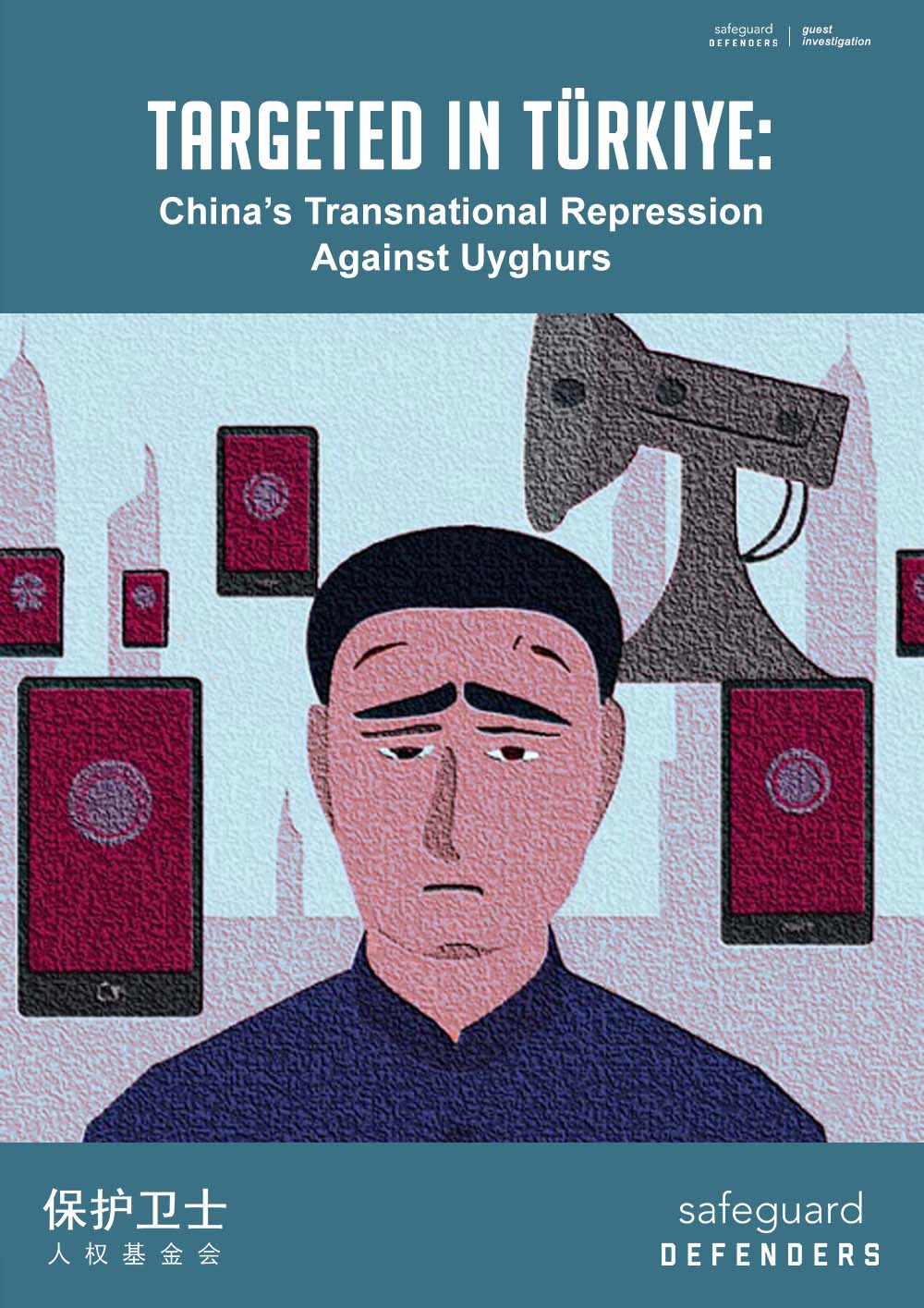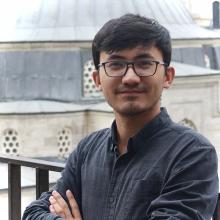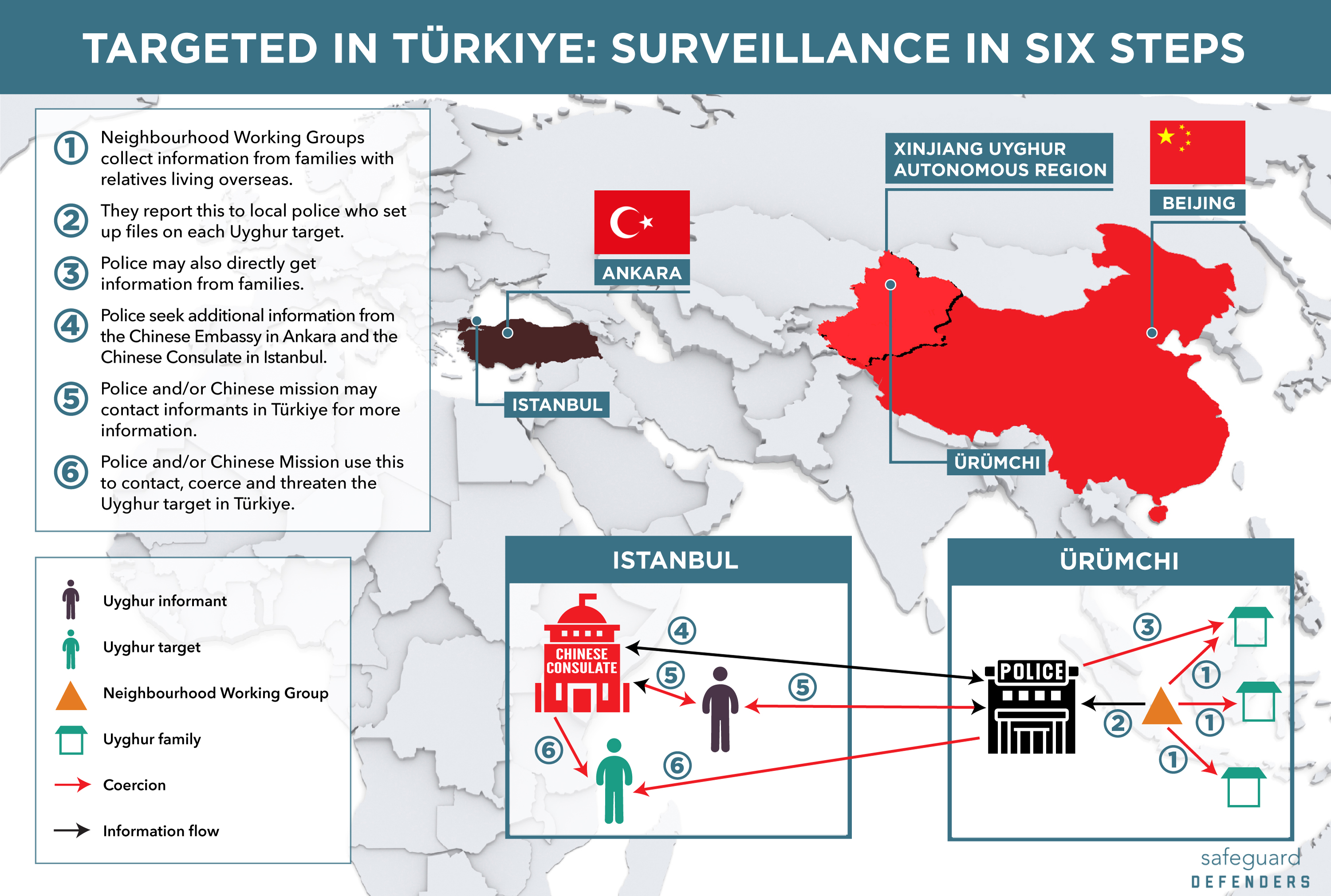New report: China is threatening Uyghurs in Türkiye to spy on diaspora
 A new report out today shows how the People’s Republic of China is increasingly pressuring Uyghurs living in Türkiye to spy on the local Uyghur diaspora.
A new report out today shows how the People’s Republic of China is increasingly pressuring Uyghurs living in Türkiye to spy on the local Uyghur diaspora.
Download the report’s executive summary here.
The report, Targeted in Türkiye: China’s Transnational Repression Against Uyghurs, used interviews with Uyghurs living in Türkiye to show how Chinese police are using transnational networks involving local Neighbourhood Working Groups in China and mission staff and informants in Türkiye to monitor and manipulate Uyghurs living overseas.
Chinese police leverage intelligence gathered from these networks to coerce Uyghurs into spying for them, keeping quiet about China’s human rights abuses or producing pro-China propaganda. In every case in this study, police used open or veiled threats against family members back home as part of the transnational repression. The findings in this report are consistent with results from other human rights reports focused on Uyghurs living in other countries in addition to Türkiye.
Note: Safeguard Defenders strongly discourages any member of the Uyghur diaspora in Türkiye from leaving without first having assured safe passage to a safe third country.
Targeted in Türkiye is a guest investigation, adapted from a paper written by Yalkun Uluyol, a Uyghur researcher at Koç University in Istanbul. His story below is emblematic of the testimonies that were used as the basis for this report, testimonies that have remained anonymous because of fears of retaliation from Beijing.
Yalkun’s story
 In 2016, my friends and relatives began deleting me from their WeChat accounts. My grandmother and grandfather started ignoring my calls. My adult cousins with university diplomas went back to “school”. I stopped hearing from my uncle, who used to go for “tea” at the local police station. My five female cousins were detained in one night, leaving their kids behind.
In 2016, my friends and relatives began deleting me from their WeChat accounts. My grandmother and grandfather started ignoring my calls. My adult cousins with university diplomas went back to “school”. I stopped hearing from my uncle, who used to go for “tea” at the local police station. My five female cousins were detained in one night, leaving their kids behind.
My grandmother passed away in early 2018, without being able to see her beloved daughter – my mother. We grieved in our two-bedroomed apartment in Istanbul, far away from home and our loved ones. No one back home dared to speak to us on the phone when we wanted to express our condolences and share our pain.
Maybe all these experiences prepared me for the day I heard from my father for the last time in June 2018. He, too, disappeared without a trace and a proper goodbye. I accepted the reality quicker than I expected. I started searching for him and tried to find ways to save him. It took me two years to confirm his detention in the Qumul Detention Center and another two years to verify that he is currently serving a 16-yearprison sentence near Urümchi. I still don’t know why. I am not sure if he is in good health or if he knows he has a granddaughter now.
My uncle that used to go for “tea” at the local police station got a life sentence. My source told me to be grateful that my father is still alive, at least... Recently, my grandfather passed away. Nothing much has changed in five years – we grieved in our two-bedroomed apartment in Istanbul, far away from home and our loved ones still. I genuinely wish my story to be unique. Unfortunately, it is not. This is the reality of Uyghurs living in and outside the Uyghur region since 2016.
The repressive policies of the Chinese state now extend beyond its borders. Chinese state-sponsored repression worldwide has affected the lives of thousands of Uyghurs through surveillance, threats, and other forms of daily harassment, causing most of the Uyghur diaspora to live in constant fear.
The fear might not always be related to their own security; Uyghurs usually worry much more about their loved ones living in the Uyghur region. It is not a secret for Uyghurs – we are strictly monitored by the Chinese state. We know that what we say or do directly or indirectly affects the people we are related to.
I did not ask many questions when my father asked for documents, including my residence permit, student certificate, and address registration, among others, during my student years, thinking all that was part of the procedures to keep my family and me “safe”. But now I know it is part of the Chinese government’s mechanisms to monitor Uyghurs living abroad. From the experiences of people I know, I am aware that this is not just limited to the information itself. State agencies use the information collected against people in the diaspora and the Uyghur region as part of their repressive policies.
As a Uyghur scholar in social sciences, it is my responsibility to uncover and investigate rights violations against Uyghurs, within or beyond borders, with my tools and skills. Governments and international agencies are responsible for protecting Uyghurs from repression with the tools and mechanisms they have. I hope this report will aid in this purpose.
Download the report’s executive summary here.
